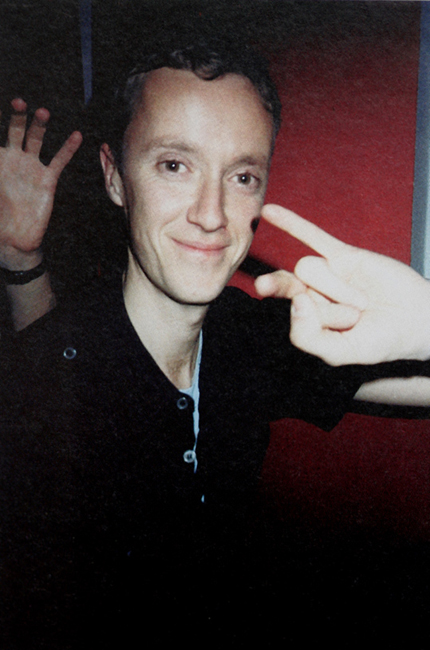
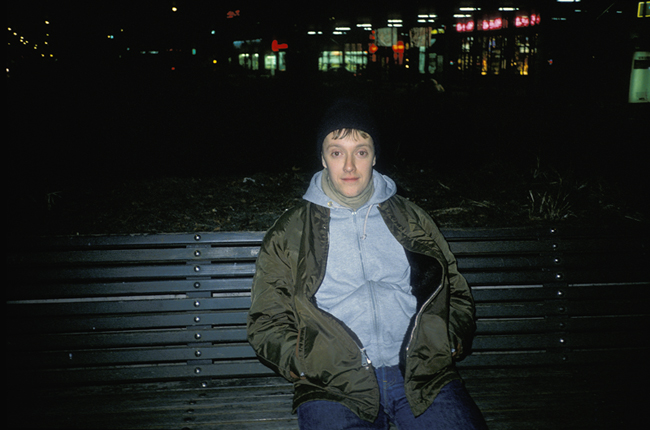
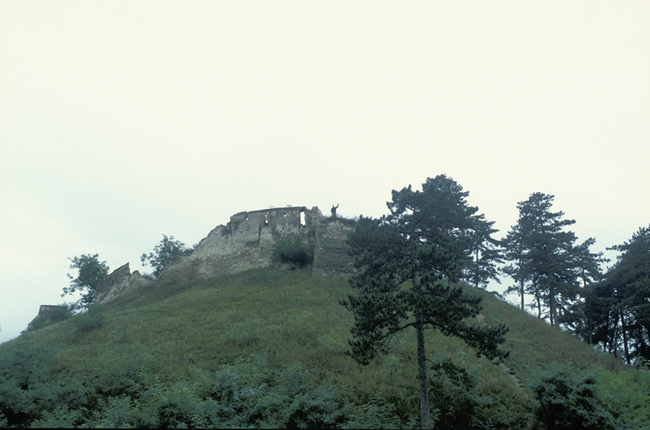

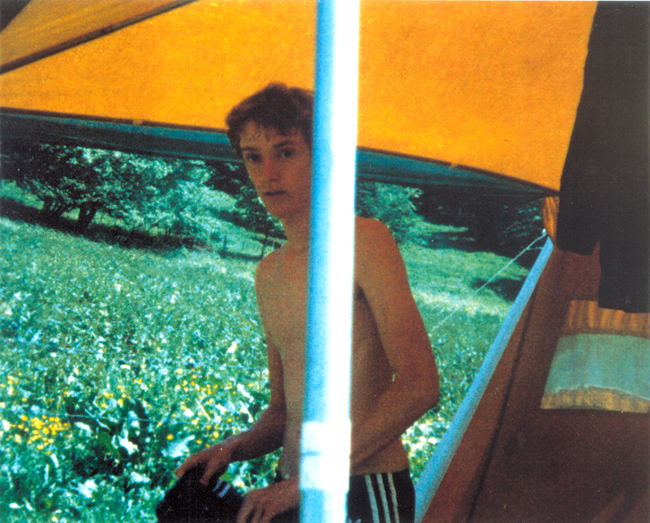

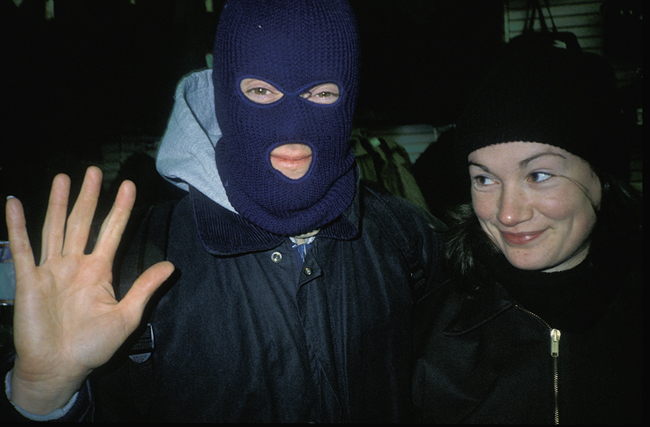
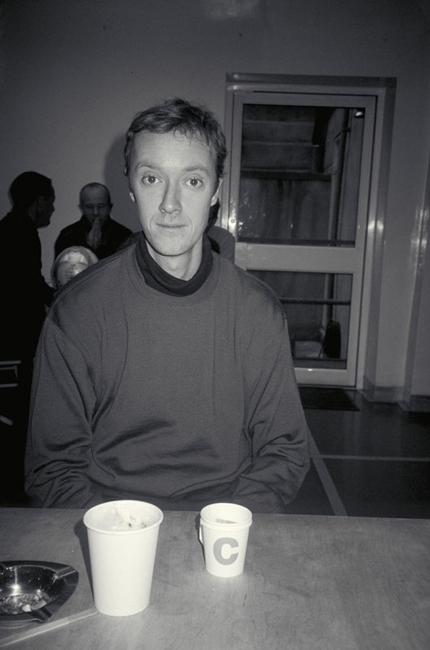
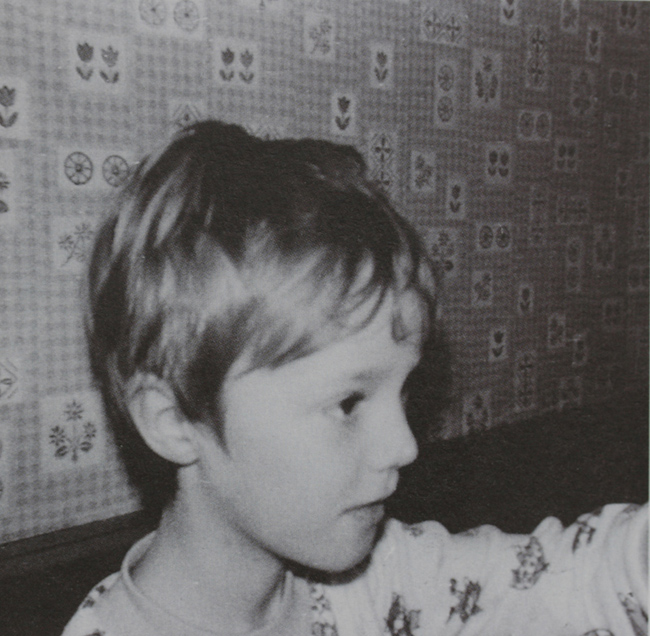
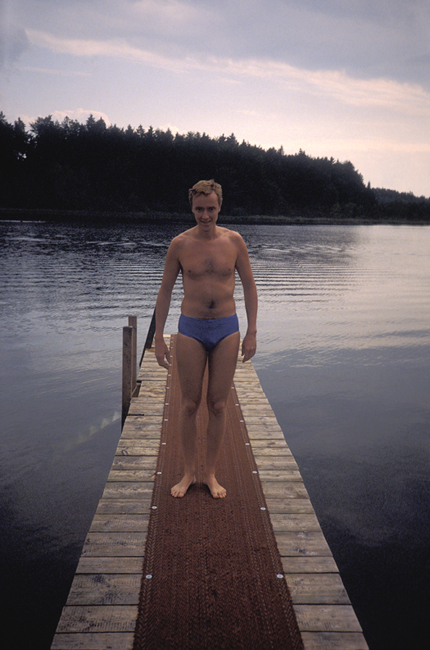
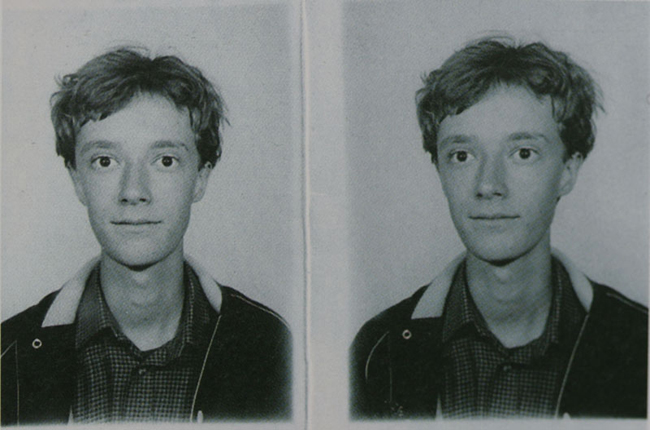
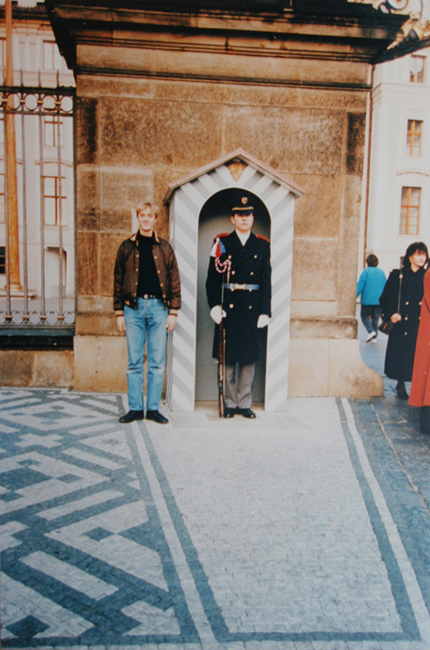
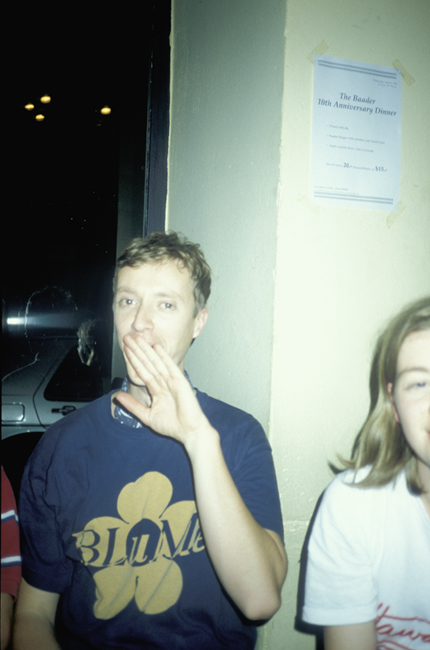
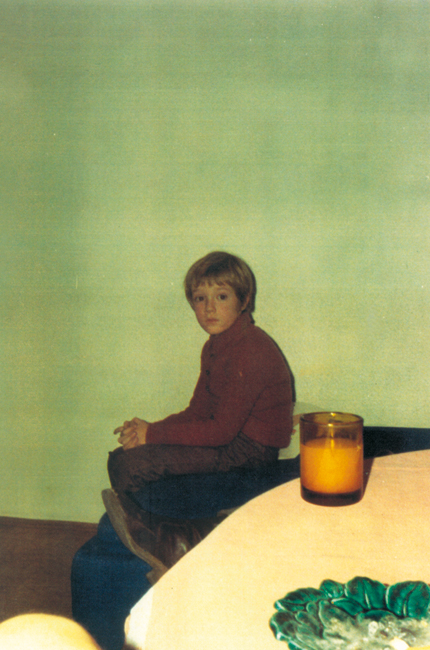 Andi Bohl | 1997 | INFO
Andi Bohl | 1997 | INFOAN EVERYDAY SENSATION
An exhibition about Andi Bohl, and he’s there in person! That doesn’t happen very often. A pity that I couldn’t get to Munich at the time, meaning that I was forced (or privileged) to see the exhibition in the gallery of the Künstlerwerkstatt Lothringerstrasse all by myself. Well, not quite; a woman was sitting on a folding chair near the entrance, keeping watch over the exhibits. She revealed that Andi Bohl was a carpet binder by profession, someone who lays fitted carpets and sews the edges.
There was no evidence of any carpet-binding activity in the exhibition. Seventy photos – maybe even a hundred – show Andi Bohl in bed, sitting at a table, and outdoors. In one shot he is a curly-haired, average kind of guy, drinking with his average-looking mates. In another he is posing as a sexy dude, bare-chested between two amused ladies. A third photo shows him in cool mode with Easy Rider style sunglasses and a girlfriend. Then we see him on a park bench, sitting there like a little boy lost. He’s definitely not camera-shy, laughing straight into the lens with his determined brown eyes, dark-blond hair, radiant, and dimpled. He certainly has nothing to be depressed about when he looks in the mirror, and the photos must have given him a fair idea of what he has looked like over the years.The photographer Martin Fengel has brought together a frieze composed of metal-framed everyday photos that have deliberately been hung too high. They are neither reportage nor conceptual art. It is an unusual work of art about somebody who, according to a copy of an interview with Andi Bohl available in the gallery, thinks of himself as pretty average. The photographers are not credited, and so it is impossible to say for certain which photos were taken by Martin Fengel. The boundaries between anonymous snapshots and professional photography are skilfully blurred. The photos bear no captions, dates, or names.
If you have personally experienced the 1960s as a child, you will hardly be able to tear yourself away from the elevated black-and-white motif of Andi as a reserved child in terry cloth ladybird-patterned pyjamas. We see him in front of detailed wallpaper that turns out to be a flower pattern upon closer inspection. A further photo, this time in colour, shows him as an intense-looking child in a red pullover, and you are forced to wonder what ever happened to that child. A small room to the rear of the exhibition explores deeper into his childhood with a opening picture of what are probably his parents sitting at the kitchen table. The burden of being Bavarian is nowhere to be seen – say hello instead to the hedonism of West Germany.
Fengel’s exhibition produces a gentle Forrest Gump-type effect. The pictures give off a sensation of the everyday, with no malice or malevolence. Andi Bohl seems to be somebody who has just misplaced his charisma but hopes to find it in his letter box sometime soon. In the meantime he just acts himself, and the perfection he exhibits with some degree of cheer leaves me with a melancholic aftertaste that disappears the moment I have once more emerged onto the street.
Ulf Erdmann Ziegler, fotografische Werke (Hamburg 1999)
 Andi Bohl | 1997 | INFO
Andi Bohl | 1997 | INFOAN EVERYDAY SENSATION
An exhibition about Andi Bohl, and he’s there in person! That doesn’t happen very often. A pity that I couldn’t get to Munich at the time, meaning that I was forced (or privileged) to see the exhibition in the gallery of the Künstlerwerkstatt Lothringerstrasse all by myself. Well, not quite; a woman was sitting on a folding chair near the entrance, keeping watch over the exhibits. She revealed that Andi Bohl was a carpet binder by profession, someone who lays fitted carpets and sews the edges.
There was no evidence of any carpet-binding activity in the exhibition. Seventy photos – maybe even a hundred – show Andi Bohl in bed, sitting at a table, and outdoors. In one shot he is a curly-haired, average kind of guy, drinking with his average-looking mates. In another he is posing as a sexy dude, bare-chested between two amused ladies. A third photo shows him in cool mode with Easy Rider style sunglasses and a girlfriend. Then we see him on a park bench, sitting there like a little boy lost. He’s definitely not camera-shy, laughing straight into the lens with his determined brown eyes, dark-blond hair, radiant, and dimpled. He certainly has nothing to be depressed about when he looks in the mirror, and the photos must have given him a fair idea of what he has looked like over the years.The photographer Martin Fengel has brought together a frieze composed of metal-framed everyday photos that have deliberately been hung too high. They are neither reportage nor conceptual art. It is an unusual work of art about somebody who, according to a copy of an interview with Andi Bohl available in the gallery, thinks of himself as pretty average. The photographers are not credited, and so it is impossible to say for certain which photos were taken by Martin Fengel. The boundaries between anonymous snapshots and professional photography are skilfully blurred. The photos bear no captions, dates, or names.
If you have personally experienced the 1960s as a child, you will hardly be able to tear yourself away from the elevated black-and-white motif of Andi as a reserved child in terry cloth ladybird-patterned pyjamas. We see him in front of detailed wallpaper that turns out to be a flower pattern upon closer inspection. A further photo, this time in colour, shows him as an intense-looking child in a red pullover, and you are forced to wonder what ever happened to that child. A small room to the rear of the exhibition explores deeper into his childhood with a opening picture of what are probably his parents sitting at the kitchen table. The burden of being Bavarian is nowhere to be seen – say hello instead to the hedonism of West Germany.
Fengel’s exhibition produces a gentle Forrest Gump-type effect. The pictures give off a sensation of the everyday, with no malice or malevolence. Andi Bohl seems to be somebody who has just misplaced his charisma but hopes to find it in his letter box sometime soon. In the meantime he just acts himself, and the perfection he exhibits with some degree of cheer leaves me with a melancholic aftertaste that disappears the moment I have once more emerged onto the street.
Ulf Erdmann Ziegler, fotografische Werke (Hamburg 1999)












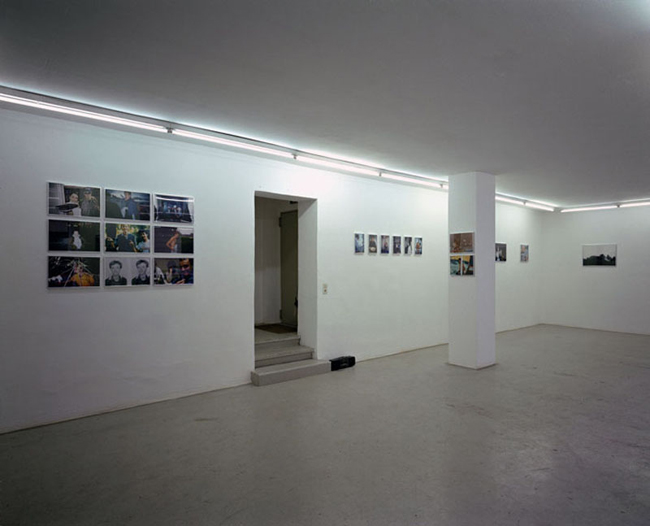 installation view, Ladengalerie Lothringerstraße, München, 1997
installation view, Ladengalerie Lothringerstraße, München, 1997